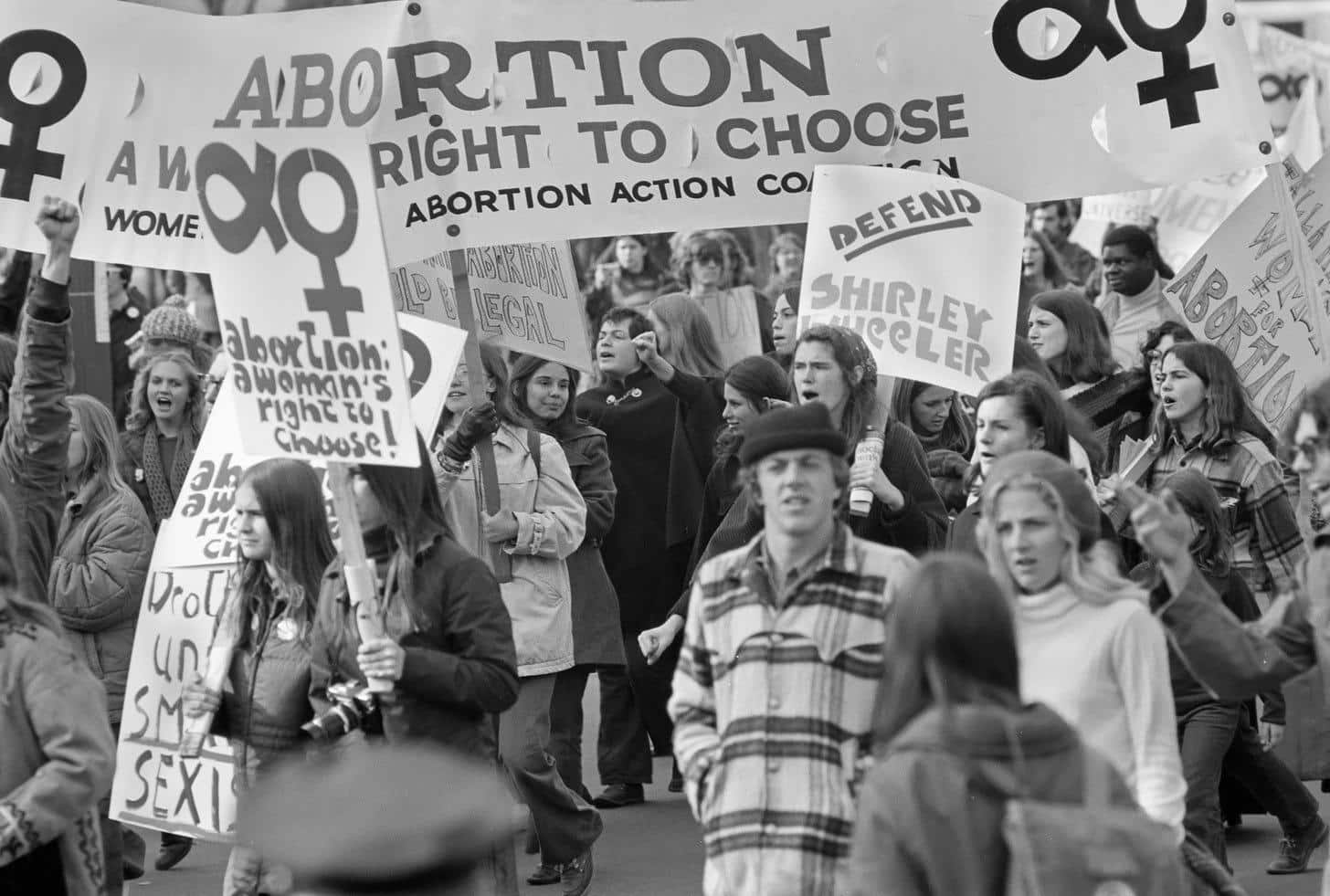
Photo by Leif Skoogfors/Getty Images
Every few years, articles about the Jane Collective re-appear in feminist newsletters and magazines. The group, based in Chicago, USA, and active from 1968 to 1973, were active in the years leading up to the 1973 Roe v. Wade legalisation of abortion nationally, and are regularly rediscovered by those working for abortion rights in every decade. This month, the website Jessica.Substack has written about them. The article says: “They were heroes, and human. They could be any of us.”
“My fear was that an outsider would paint us as superheroes or Amazon warriors, as extraordinary,” Laura Kaplan, one of the members of Jane, wrote in the 2019 preface to her book: The Story of Jane: The Legendary Underground Feminist Abortion Service (available on the web from many publishers). It’s a must-read history of the Chicago feminist group who arranged and also carried out secret, illegal abortions in the late 1960s and early 1970s.
Jane, Kaplan says, was not some exceptional or otherworldly group. “We were ordinary women. I hope that everyone who reads this history will see herself in us and think: that could be me.”
Jane was formed in Chicago in 1968, emerging out of the city’s vibrant activist New Left movement. In the beginning, it was simple: women who wanted abortions could call a telephone number and ask for Jane. Someone from the group would call them back, offer them counselling, and then connect them to a reliable abortion provider. The service helped women navigate the dangerous and opaque world of Chicago’s illegal abortion market, helping them stay safe and avoid providers who were incompetent or predatory. The phone number could be found in phone booths all over the city and on help wanted boards in shop windows.
The dangers were real: at the time, Chicago’s Cook County Hospital, like most public hospitals in the US, had a septic abortion ward to treat patients who had been hurt by incompetently performed abortions. And the overwhelmingly male providers on the black market were known to demand sexual favors in exchange for abortions, in addition to extortionate prices.
Jane also helped women pay for their abortions: from the beginning. The group served not just as a referral service, but also as a loan fund, raising money from wealthy sympathizers around Chicago and asking all their patients to pitch in as much as they possibly could, to help cover the procedures of others who couldn’t afford their abortions.
As time went on, demand grew, and so did Jane. Because they could bring in large amounts of business, they could extract concessions from the underground abortion providers they relied on. They could get abortions done at a lower cost; they could sit in on the procedures to make sure that women were treated well. Jane began setting up makeshift clinics three days a week in their members’ apartments; they would observe the abortions, connect patients with ob-gyns for aftercare in case anything went wrong, and provide sex education, including free copies of Our Bodies Ourselves, the book by the Boston Women’s Health Book Collective that was the most important source of information about women’s health and rights in those years.
Eventually, they discovered that their main abortion provider wasn’t in fact a doctor. Some of the Janes were outraged by this news and left. But others decided to stay on. After all, they thought, the abortions he had been providing had been effective and safe. And if he had learned to do it, why couldn’t they?
And so they did. They learned to perform safe abortion procedures. According to their records, in this period they were doing about 30 abortions per day, three days per week. It is estimated that the Janes provided some 11,000 abortions in their five-year history, from 1968 to 1973, when the law was changed, legalizing abortion.
… If these all too human people could accomplish something that we now see as heroic, what might you—in all your messy humanity—accomplish yourself?
This isn’t a hypothetical. The fact is that the Janes’ example of hard work, resourcefulness, and determination is being recreated in our own post-Roe era. Because almost everything the Janes did in their own time—the fundraising, the referrals, the education, the counselling, the defiance—is being done now by abortion funds.
In 2022, an excellent full-length documentary about the Janes was produced by HBO, called The Janes. Co-directed by Tia Lessin and Emma Pildes, it offers first-hand accounts from the women at the centre of the group, many speaking on the record for the first time. It has filled cinemas wherever it was shown. That film, and Laura Kaplan’s book, are must-see and must-read. They inspired the whole abortion rights movement in their day and will hopefully go on doing so for as long as it is needed.
SOURCE: Abortion Every Day: The Truth about Jane. Jessica Substack, by Moira Donegan, 19 August 2024.



